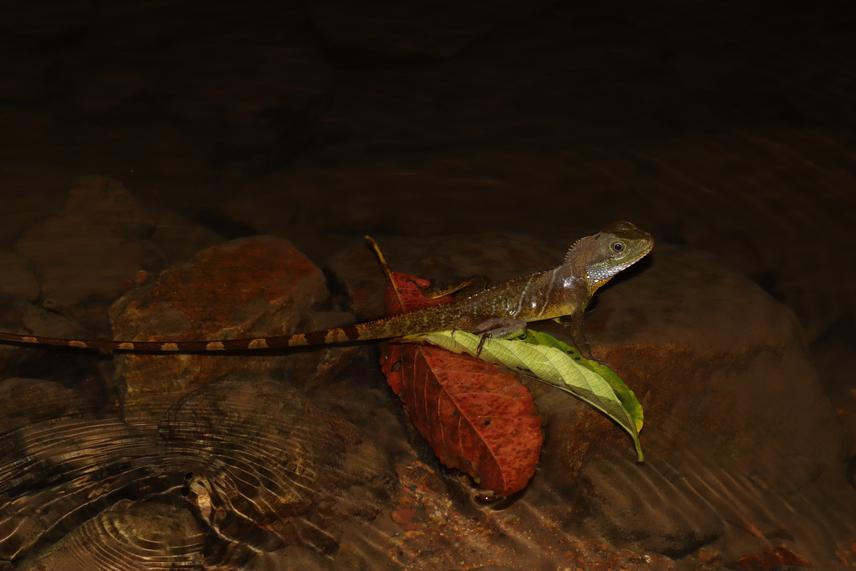Tran Gia Thinh
Vietnam is home to one of the most diverse reptilian fauna in the world with 537 known species (Stolton et al. 2004; Adler 2009; Uetz et al. 2023). Subregion, Southern Annamites, is well-known by its high level of endemism herpetofauna (Bain & Hurley 2011; Stenger et al. 2023). However, most of them are threatened by habitat loss and overharvesting for human consumption. The Di Linh plateau belongs to the end of the Annamite Mountains, Vietnam, and extends to the southwest of Lam Dong Province before giving way to the Mekong Delta to the south. As one of the two plateaus of the reptilian subregion Southern Annamite in Vietnam, the Di Linh plateau has a lower elevation with the highest peak of 1800m compared to the Langbian plateau with a highest peak of over 2400m (Sterling et al., 2006). This is a region that presents heterogeneous landscapes composed of agricultural areas, specially composed by coffee farms and forest remnants. The remaining natural forests of this area are being managed by local forestry companies. The first data on reptile fauna was published with 40 species but based mainly on anterior literatures (Nguyen and Kuznetsov, 2011). A new snail-eating snake (Pareas temporalis) was discovered in 2020 (Le et al., 2020), highlighting that knowledge of the significant diversity of reptiles in this area is still extremely lacking. Therefore, evaluating the diversity, ecology, and threats of reptiles is urgent in this area.

Physignathus coccincinus (Chinese Water Dragon). ©Tran Gia Thinh.
The project aims to: evaluate the diversity and distribution of reptiles in Di Linh plateau, Lam Dong Province, Vietnam, including the discovery of new species or new records for the area; evaluate major threats to the reptilian fauna in Di Linh plateau, Lam Dong Province; and provide recommendations for conservation measures. The results of this project will contribute to the development of capacity and provide significant data for local managers in conservation, and biodiversity management.
Header: Habitat in Di Linh plateau. ©Tran Gia Thinh.